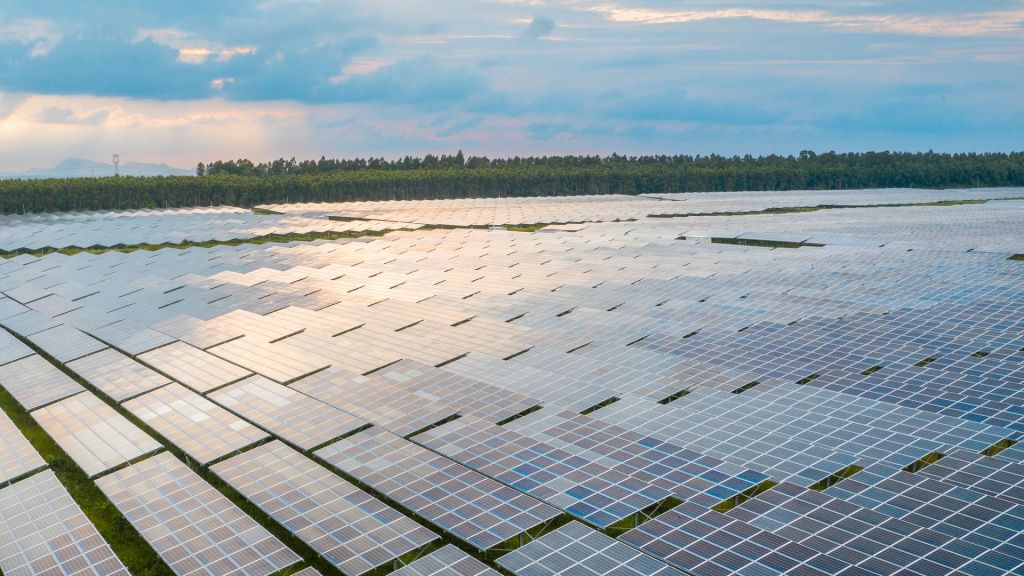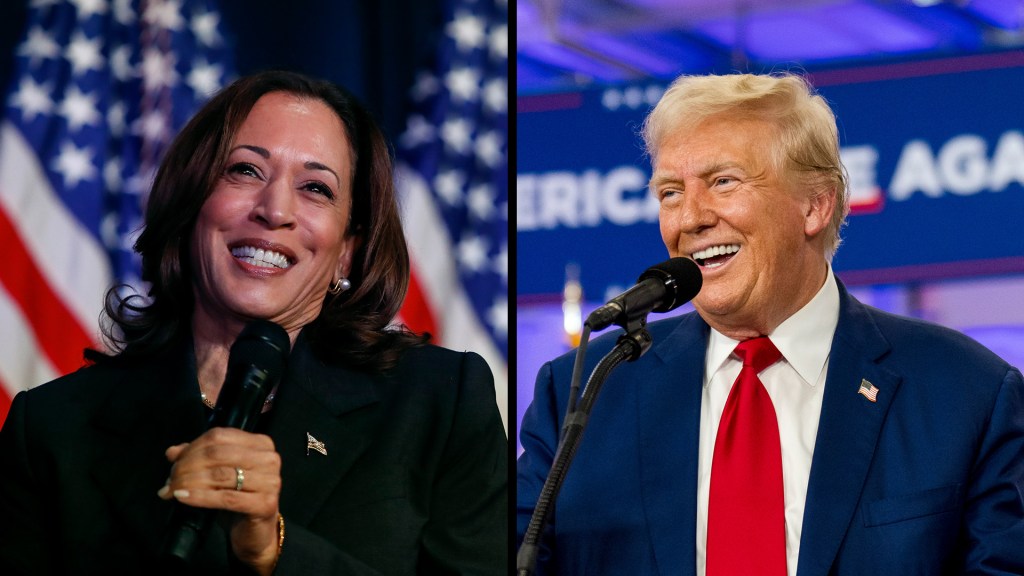Regarding tariffs on Chinese goods, 2024 presidential candidates Joe Biden and Donald Trump are more in lockstep than not. Both candidates appear to believe raising tariffs on China is a winning issue in key battleground states.
On Tuesday, May 14, President Biden announced additional tariffs on Chinese electric vehicles, solar cells, advanced batteries, and semiconductors. The White House said increased tariffs will apply to about $18 billion worth of annual imports from China.
Four years ago, Biden said then-President Trump was going after China in the wrong way. However, since becoming president, Biden has not only kept Trump’s tariffs on China in place, he’s now tacking on.
As for how the two candidates differ in their tariff goals, Biden’s additions are more targeted while Trump has floated enormous tariff increases on all Chinese goods if reelected in November.
To understand why both candidates are leaning into tariffs and what price Americans pay, Straight Arrow News spoke with Kyla Scanlon, an economic commentator and author of “In This Economy? How Money & Markets Really Work.”
Below is an excerpt from the interview, edited for clarity. Watch the conversation in the video above.
Simone Del Rosario: Kyla, I want to talk about how tariffs really work. What do Biden and Trump think these tariffs will achieve versus what really happens when we increase tariffs on foreign trade partners?
Kyla Scanlon: Tariffs are tough, right? So it’s a tax on imports. Here specifically, it would be on China. And right now, it’s definitely a political talking point.
Everybody wants to see friend-shoring, reshoring, and that’s why these tariffs are being positioned as such and being talked about right now. I think people are hoping that it’ll achieve electoral votes, political points.
It’s tough because normally the U.S. consumer does end up paying the cost for these tariffs in the long run because they make everything more expensive to consume.
Simone Del Rosario: Are tariffs a proven way to protect the American manufacturing sector? And is America’s manufacturing sector robust enough to be able to benefit from this?
Kyla Scanlon: It’s a good question. Detroit has seen a slowdown in clean energy production and electrification. You’ve seen an uptick in dirty energy, as they call it. We don’t import a lot of solar cells and EVs from China but it’s something that we’re relying on more and more, and that’s why the tariffs that Biden is imposing are a little bit more strenuous. We are relying on it more so it is going to be more economically impactful. It’ll just take time.
It’s not a lot of money, it’s about $18 billion worth against 8% of total exposed volume that the tariffs end up amounting to. So it’s not a lot of stuff and it’s unsure if China will retaliate yet, they’re not very happy about it.
But there’s definitely going to be an economic cost to doing this. The clean energy fight is super important and we kind of have to do everything that we can and getting into a political war about it is not always so useful, right?
Simone Del Rosario: You said that the American consumer ends up paying for this. We’ve already shouldered so much in goods inflation over the past couple of years. How might increased tariffs affect the current inflation rate?
Kyla Scanlon: Reshoring is inflationary, inherently, right, because it is cheaper to import certain things. Comparative advantage is a real economic concept. So I think that’s the big worry with things like this is that we are reliant on some aspects of pulling technology from other countries, and if we try to produce everything ourselves, that’s going to be expensive.
It’s going to be expensive in building the manufacturing plants and hiring the labor and training up the labor. And we have the Inflation Reduction Act, but even with that, it’s still going to be probably a meaningful cost.
Simone Del Rosario: I’m curious why these politicians, again, think that tariffs are a winning issue. What do you think the message is to Americans when we increase tariffs on places like China versus what’s actually happening with prices? Where’s the disconnect?
Kyla Scanlon: It’s a framing thing. President Biden tweeted out that part of his housing plan was to give people $400 per month for two years so they could purchase their first home or contribute money toward their first home.
That’s not a great way to talk about housing policy – we really have to build more homes – but if you’re framing it from a political perspective, people do like the idea of getting $400 per month. But if you’re like, ‘We’re gonna build 100 more homes,’ sometimes that doesn’t fly as well.
So tariffs are ultimately that sort of thing. They’re ultimately a framing tool. And that’s why it’s been implemented and why they’re talked about. It is like, ‘Okay, we’re going to go up against China.’
We have outsourced a lot of manufacturing to China. We have outsourced a lot of work to China and now with worries around AI and whether the economy is actually slowing. The more that you can politically position to be like, ‘We’re bringing everything back here,’ the better.

